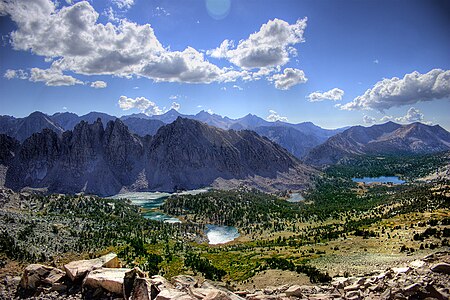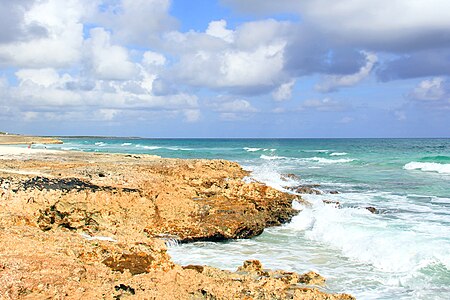User:Korinne/Sandbox1: Difference between revisions
No edit summary |
No edit summary |
||
| Line 19: | Line 19: | ||
As per 2019 estimates, population has been steadily climbing from 34,764,129, due to a demographically shifting population rate being matched by steady migration from Ardesia. It is the 5th most populous country in Asteria Superior, and the 26th most populous in Kylaris at large. Among Asterian nations, it has one of the lowest population growth rates among its own citizens, and a lower infant mortality rate. | As per 2019 estimates, population has been steadily climbing from 34,764,129, due to a demographically shifting population rate being matched by steady migration from Ardesia. It is the 5th most populous country in Asteria Superior, and the 26th most populous in Kylaris at large. Among Asterian nations, it has one of the lowest population growth rates among its own citizens, and a lower infant mortality rate. | ||
{{Largest cities | {{Largest cities | ||
| name = Largest cities of Eldmark | | name = Largest cities of Eldmark | ||
| Line 157: | Line 94: | ||
| pop_20 = 222,162 | | pop_20 = 222,162 | ||
}} | }} | ||
=== Health === | |||
[ADD MORE HERE, PUBLIC HEALTHCARE NOW] | |||
=== Education === | |||
[ADD MORE HERE] | |||
=== Religion === | |||
{{Bar box | |||
|width = 400px | |||
|float = right | |||
|title = <small>Religion of Eldmark (2022)</small> | |||
|titlebar = #ddd | |||
|bars = | |||
{{Bar percent|[[Amendist Reaction|Amendism]]|#3D3A32|72.5}} | |||
{{Bar percent|{{wp|Irreligion}}|#8FA200|12}} | |||
{{Bar percent|[[Solarian Catholic Church|Solarian Catholicism]]|#FFC300|10}} | |||
{{Bar percent|[[Badi]]|#47BAC5|4}} | |||
{{Bar percent|Other|#4682BF|1.5}} | |||
|caption = <small>Source: Nationell Rekordbyrån</small> | |||
}} | |||
As per the [[Författningen]], [[Amendist Reaction|Amendism]] has been considered a preferential religion in Eldmark, though religious freedom is guaranteed among all inhabitants by that same document. According to 2022 census data, Eldmarsk people are 72.5 percent Amendist, with the overwhelming majority of Amendists identifying as adherents to the Gospelist Church of the Asterias, 12% Agnostic or Athiest, 10% Solarian Catholic, 4% Badi, and 1.5% of other religions, including Irfan, Atudaism, Episemailism, and Satyism. | |||
=== Ethnic groups === | |||
[BECOME LESS WHITE] | |||
Eldmark is considered to be, as well as other areas of Asteria Superior, to be a nation of immigrants. Many inhabitants of the country call the country a "Degel av färger" or a "crucible of colors," mainly due to the various waves of immigration from Euclean, Coian, and other Asterian nations, as well as the pre-existing populations of indigenous peoples. | |||
Eldmark is also home to a significant population of Gowsa, including those of partial descent. Gowsa number [number], though official counts vary due to differences of opinion of whether partial descent counts among official surveys. | |||
{{Pie chart | |||
| caption = Ethnic Groups in Eldmark | |||
| label1 = Euclean | |||
| value1 = 52 | |||
| color1 = red | |||
| label2 = Indigenous/Mixed | |||
| value2 = 28 | |||
| color2 = blue | |||
| label3 = Bahio-Eldmarsk | |||
| value3 = 10 | |||
| color3 = yellow | |||
| label4 = Gowsa | |||
| value4 = 7 | |||
| color4 = green | |||
| label5 = Other | |||
| value5 = 3 | |||
| color5 = orange | |||
}} | |||
Eldmark is also home to a variety of Bahians, mostly due to the international slave trade of the 16th to 18th centuries, and among secondary immigration from [[Bonaventura]]. As slavery was abolished in 1771, the country was an attractive location for former slaves to escape societies where they would otherwise be at risk. As far early as 1823, the government would offer legal refuge to slaves in exchange for military service; as such, population clusters of Bahio-Eldmarsk would be found not only in the cities, but in the countryside. For example, the town of Juniskaren was founded by escaped slaves. | |||
=== Languages === | |||
The ''de facto'' language in Eldmark is {{wp|Swedish Language|Blostlandic}}, and is considered the official language in most areas, including in government proceedings. The country is the largest Blostlandic-speaking society in Kylaris, outpacing its coloniser and origin [[Blostland]]. Due to the geography of Eldmark, there are at least 24 identified dialects and accentual variants of Blostlandic. | |||
There are several second languages in various degrees of use in Eldmark: | |||
* Gaullican, which is a popular second language. | |||
* Estmerish, another popular second language, though decidedly not as used. Most commonly spoken in The Sister Islands and Vanö. | |||
* Odavli, which is also the only other language to be featured as a primary language in government documents, though only in Odavlistaden. | |||
* Vespasian, typically in Eastern Eldmark. Spoken predominantly by Ardesian immigrants. | |||
* Ziba, the predominant language spoken by Gowsas | |||
* Senrian, due to Senrian communities in the region. | |||
[Reform perhaps] | |||
== Culture == | == Culture == | ||
Revision as of 05:29, 2 December 2023
Geography
Eldmark is the 5th largest country in Asteria Superior with a total size of 1,614,037 square kilometres. Eldmark is located at the southwestern tip of the continent, bound by both the Arucian Sea and the Vehemens Ocean as its coasts. Because of this, Eldmark is the only nation within the continent to have coastlines in both bodies of water. It also possesses a unique geostrategic position because of this fact, and possesses one of the longest coastlines in the continent.
Dominating the country's western coast is the Ryggrad, also known as the [international name] Mountains, which stretch from the far south in Hammarvik, following the Vehemens coast into Nuxica. These mountains effectively divide the country in half between east and west. As the west was settled first and is considered the older part of Eldmark, approximately 50% of the population lives in this area, though it makes up less than a fifth of the land. This mountain range was formed by two converging plates, creating a seismically active zone responsible for countless earthquakes over the nation's recorded history.
On the other side of the mountains lies the Jansplatå, a highland of scrubland and chapparal that is crisscrossed with rivers, such as the Salali and the Inadu, the latter creating a canyon in the plateau. This region makes up a vast portion of land east of the Ryggrad, and is known for hot and dry temperatures, though areas near rivers are irrigated for arable land. This area, along with the Ryggrad itself, has great mineral wealth, particularly gold, copper, and nitrates. The region eventually fades into rolling, hilly savannah as the rain shadow created by the Ryggrad loses its effect. The far east of Eldmark largely shares the climate of western Ardesia.
Climate
The climate of Eldmark is diverse, ranging from a Solarian climate in the west, to arid desert in the center, to tropical savannah in the east. The Ryggrad itself sports a cooler highland climate. According to the Köppen system, Eldmark contains at least 5 climatic subtypes. This is influenced by a rain shadow from the Ryggrad, as well as the Jan Haagard current in the Vehemens Ocean.
Demographics
As per 2019 estimates, population has been steadily climbing from 34,764,129, due to a demographically shifting population rate being matched by steady migration from Ardesia. It is the 5th most populous country in Asteria Superior, and the 26th most populous in Kylaris at large. Among Asterian nations, it has one of the lowest population growth rates among its own citizens, and a lower infant mortality rate.
| Rank | Political division | Pop. | Rank | Political division | Pop. | ||||
|---|---|---|---|---|---|---|---|---|---|
 Hammarvik  Grönsund |
1 | Hammarvik | EH | 6,724,000 | 11 | Sankt Albrekt | Systrarna | 543,551 |  Åndalvern  Stalkulle |
| 2 | Grönsund | Räckvidden | 4,291,732 | 12 | Knuten | Vanö | 465,703 | ||
| 3 | Åndalvern | Hammarstad | 2,642,825 | 13 | Ytterholm | Norrahaven | 433,604 | ||
| 4 | Stalkulle | Hornmark | 1,488,307 | 14 | Hunavatn | Odenmark | 422,630 | ||
| 5 | Tjallingen | Arucia | 1,481,806 | 15 | Erikstad | Odenmark | 415,311 | ||
| 6 | Alestrand | Alestad | 1,418,118 | 16 | Klosan | Alestad | 397,237 | ||
| 7 | Stenighamn | Bronckmark | 839,311 | 17 | Vitberg | Bronckmark | 317,480 | ||
| 8 | Håkonsbruka | Ammansland | 834,678 | 18 | Runavik | Systrarna | 249,217 | ||
| 9 | Platenburg | Norrahaven | 785,184 | 19 | Awahali | Ajohlenstad | 227,398 | ||
| 10 | Vaxholmen | Vanö | 575,847 | 20 | Tsisa | Ajohlenstad | 222,162 | ||
Health
[ADD MORE HERE, PUBLIC HEALTHCARE NOW]
Education
[ADD MORE HERE]
Religion
As per the Författningen, Amendism has been considered a preferential religion in Eldmark, though religious freedom is guaranteed among all inhabitants by that same document. According to 2022 census data, Eldmarsk people are 72.5 percent Amendist, with the overwhelming majority of Amendists identifying as adherents to the Gospelist Church of the Asterias, 12% Agnostic or Athiest, 10% Solarian Catholic, 4% Badi, and 1.5% of other religions, including Irfan, Atudaism, Episemailism, and Satyism.
Ethnic groups
[BECOME LESS WHITE] Eldmark is considered to be, as well as other areas of Asteria Superior, to be a nation of immigrants. Many inhabitants of the country call the country a "Degel av färger" or a "crucible of colors," mainly due to the various waves of immigration from Euclean, Coian, and other Asterian nations, as well as the pre-existing populations of indigenous peoples.
Eldmark is also home to a significant population of Gowsa, including those of partial descent. Gowsa number [number], though official counts vary due to differences of opinion of whether partial descent counts among official surveys.
Ethnic Groups in Eldmark
Eldmark is also home to a variety of Bahians, mostly due to the international slave trade of the 16th to 18th centuries, and among secondary immigration from Bonaventura. As slavery was abolished in 1771, the country was an attractive location for former slaves to escape societies where they would otherwise be at risk. As far early as 1823, the government would offer legal refuge to slaves in exchange for military service; as such, population clusters of Bahio-Eldmarsk would be found not only in the cities, but in the countryside. For example, the town of Juniskaren was founded by escaped slaves.
Languages
The de facto language in Eldmark is Blostlandic, and is considered the official language in most areas, including in government proceedings. The country is the largest Blostlandic-speaking society in Kylaris, outpacing its coloniser and origin Blostland. Due to the geography of Eldmark, there are at least 24 identified dialects and accentual variants of Blostlandic.
There are several second languages in various degrees of use in Eldmark:
- Gaullican, which is a popular second language.
- Estmerish, another popular second language, though decidedly not as used. Most commonly spoken in The Sister Islands and Vanö.
- Odavli, which is also the only other language to be featured as a primary language in government documents, though only in Odavlistaden.
- Vespasian, typically in Eastern Eldmark. Spoken predominantly by Ardesian immigrants.
- Ziba, the predominant language spoken by Gowsas
- Senrian, due to Senrian communities in the region.
[Reform perhaps]
Culture
[ADD MORE HERE]
Music
[ADD MORE HERE]
Art
[ADD MORE HERE]
Literature
[ADD MORE HERE]
Film
[ADD MORE HERE]



